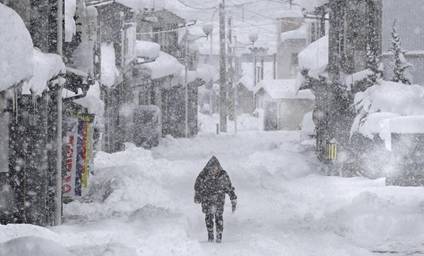
This year's International Day for Disaster Reductionfalls shortly after a
devastating earthquake andtsunami in Indonesia showed yet again the urgencyof resilience and risk-awareness.
今年的國際減災(zāi)日恰逢印度尼西亞發(fā)生毀滅性的地震和海嘯之后不久�����,這一災(zāi)難再次表明迫切需要具備復(fù)原力和風(fēng)險意識��。
Disasters have a steep human cost.
災(zāi)害給人類造成巨大的損失��。
Millions of people are displaced every year, losing their homes and
jobs because of extremeweather events and earthquakes.
由于極端天氣事件和地震�����,每年有數(shù)百萬人流離失所�,失去家園和工作�。
However, not all countries report systematically on the economic
losses from major disasterevents, according to a new report prepared by the UN Office for Disaster Risk Reduction.
然而,聯(lián)合國減少災(zāi)害風(fēng)險辦公室編寫的一份新報告顯示���,并非所有國家都系統(tǒng)地報告重大災(zāi)害事件造成的經(jīng)濟損失����。
This year's International Day aims to highlight the need for Member States to improve datacollection on disasters, including comprehensive accounting of economic
losses.
今年的國際減災(zāi)日旨在著重指出會員國需要改進災(zāi)害數(shù)據(jù)收集,包括全面核算經(jīng)濟損失���。
This is crucial for progress on crisis prevention.
這對取得預(yù)防危機的進展至關(guān)重要�����。
For example, a better understanding of the economic losses from extreme
weather events canhelp to generate greater action on climate change and increased ambition on reducinggreenhouse gas emissions.
例如����,更清楚地了解極端天氣事件造成的經(jīng)濟損失���,有助于在氣候變化問題上采取更大的行動���,并增強減少溫室氣體排放的雄心。
Measuring economic losses can also motivate governments to do more to
achieve the targetsof the Sendai Framework for Disaster Risk Reduction, which seeks a
substantial reduction indisaster losses by 2030.
衡量經(jīng)濟損失還可以促使各國政府做出更多努力�����,實現(xiàn)《仙臺減少災(zāi)害風(fēng)險框架》的各項目標(biāo)���,該框架旨在到2030年大幅度減少災(zāi)害損失���。
Reducing the economic losses from disasters has the power to transform lives and contributegreatly to the eradication of poverty.
減輕災(zāi)害造成的經(jīng)濟損失使人們有能力改變生活��,為消除貧窮做出巨大貢獻��。
As we mark the International Day for Disaster Reduction, let us reaffirm our
commitment tothis vital endeavour.
在我們紀(jì)念國際減災(zāi)日之際�,讓我們再次承諾開展這一重要努力��。